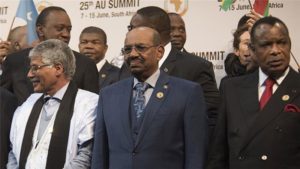While the court was deliberating, they ordered that al-Bashir not be allowed to leave until they could make a final decision. Unfortunately, al-Bashir managed to fly out of the country by Monday morning, not waiting to hear the court’s decision. It is unclear who may have assisted him in defiance of the court order, and the court is requesting a report to detail as much; however, perhaps damningly, there is a divide between the judiciary and the ruling party in regards to South Africa’s obligations to the ICC. While the international legal questions being considered are both fascinating and difficult to parse, it is unfortunate that South Africa did not succeed in taking advantage of arresting an internationally wanted man. However, their judiciary must be commended for making the most serious attempt at taking al-Bashir into custody in recent memory.
Despite the legal mandate that states who are party to the Rome Statute (the piece of international law that established the ICC) must enforce arrest warrants, al-Bashir, who has been indicted by the ICC since 2009, has been able to travel without serious consequence. According to Bashir Watch, an international coalition working to pressure policymakers to support the ICC’s arrest warrant, Al-Bashir has traveled to 18 countries in the intervening period, including China, a member of the UN Security Council, who has just extended another invitation to al-Bashir to visit Beijing.
Though the failure to arrest al-Bashir can be seen as a blow to international justice, many are taking heart: the actions of a civilian group prompted the review by the court, and the whole series of events launched al-Bashir and his egregious crimes back into the headlines. We hope that the advocacy demonstrated by those that would hold al-Bashir accountable for his crimes inspire others, and we further hope that our world leaders consider how to fully support the mission of the ICC so the Darfuri people can see justice.


